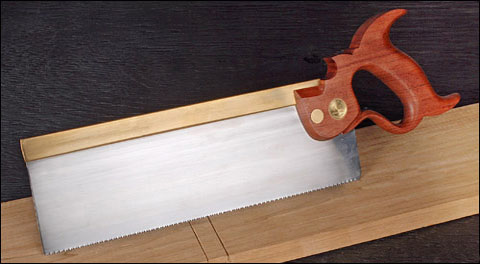
A lot of companies give lip service to listening to their customers. Unfortunately, there’s so much lip service going on, companies often don’t have time to actually listen to customers.
That’s not the case at Lee Valley Tools where CEO Leonard Lee leads by example. He answers his own phone and does his own correspondence. When we talked to him, he had just finished explaining to one customer how to sharpen a raspberry cane cutter. His company makes and distributes woodworking tools as well as gardening tools. “If you answer all your correspondence and don’t screen your telephone calls, you stay in touch with your customers,” says Leonard.
He started the business back in 1978. Formerly a woodworking hobbyist, he quit his job, mortgaged the house and launched the company with its first product: a frame clamp that Leonard had designed. The innovation in the clamp was the introduction of speed nuts, nuts that could be adjusted quickly without the endless spinning required by similar systems. It was with that first product, however, that Leonard learned that protecting his customers was an important part of keeping them.
No Predatory Selling
While Leonard really believed in his frame clamp, the manufacturer that made it for him used nonstandard threaded rods for the clamps (1/4″/24).
This was half way between the national coarse standard and the national fine standard, so customers would be forced to order special parts from the manufacturer if they wanted extension rods.
“Well, that’s an awful way to treat a customer,” says Leonard. “If you sell him something, make it standard so he can get repairs or extensions or whatever without having to come back to you on a string. And that whole philosophy of using unique threads or sizes just so the customer is forced to come back to you is a predatory way of selling, I think.” So Leonard began manufacturing clamps with standard threads and, eventually, started Veritas, the wholly owned subsidiary and manufacturing arm of Lee Valley.
Tip of the Iceberg
One wonders if Leonard has good gut instincts about listening to customers or if he developed this approach through his own experiences as a customer … or both. Veritas became more and more involved in manufacturing tools for Lee Valley because of Leonard’s frustrations with some of the tool suppliers he dealt with. The thing that really got his goat was when he would contact a manufacturer and ask them to change a product and got a response like: “you’re the first person to complain about this.”
“Well, that doesn’t matter a damn,” is Leonard’s response. “If it’s a good comment, then you better believe that that’s the tip of the iceberg. There are 90 people out there who are saying ‘I wish they would do something about this, but I’m not going to take the time to teach them their business.’ And the guy who doesn’t pay attention to those comments is not going to be bothered with a lot of growth.”
He was clearly frustrated with the feedback loops that didn’t exist between him, the customer, and the companies he worked with. Veritas grew, he explained, because “when you manufacture and sell directly, you’ve got a very direct feedback loop with the customer.”
And that direct feedback loop has been very effective and profitable. In fact, he’s had such good suggestions from customers that about 15 are currently receiving royalties for inventions they’ve suggested and Leonard’s company currently produces. Most woodworkers, he says, have at least one good idea bouncing around in their heads. “A lot of people out there have very straightforward, simple solutions to problems, and those are invariably the best,” says Leonard. And sometimes it’s something simple, like using a slot screw in a product instead of a cap screw. “This is not revolutionary stuff, but I tell you it improves the product line, just those tiny little tune-up things. We sit here and get trained by our customers on a regular basis,” he adds.
Not only does Leonard listen to his customers, he genuinely likes them. “Woodworkers are really such straightforward people,” he says. “They’re honest, and they’re so easy to deal with. I didn’t realize when I got into this business how lucky I was with the very nature of the customer. You see customers in other industries, and they are infinitely more difficult,” says Leonard. And customers have helped him build a company with 500 employees and a manufacturing facility that designs and builds about 30 percent of everything he sells in his catalogs.
– Bob Filipczak





